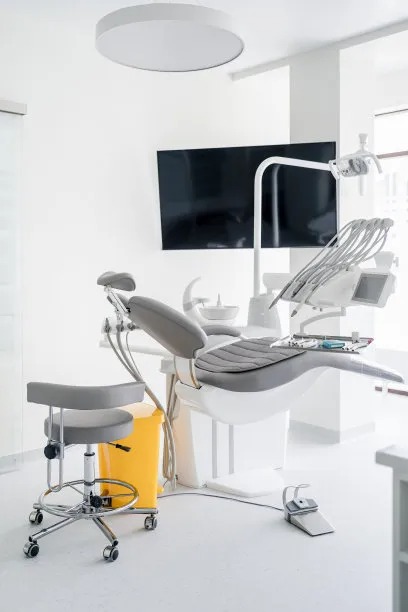Summary: Extracting a tooth may seem daunting, but it is sometimes necessary for maintaining long-term dental health and overall wellbeing. This article explores the crucial reasons for tooth extraction, including preventing further dental complications, ensuring proper alignment, promoting the health of surrounding teeth, and potentially alleviating overall health risks. Each reason is supported by evidence of how timely tooth removal can lead to improved oral health outcomes and enhanced quality of life. By understanding the importance of extraction when indicated, individuals can make informed decisions regarding their dental care and wellbeing.
1. Preventing Further Dental Complications

One of the primary reasons for tooth extraction is the prevention of further dental complications. When a tooth is severely decayed or damaged beyond repair, it can lead to a host of issues. If left untreated, such a tooth can become infected, resulting in abscess formation and the potential spread of infection to other parts of the body. This can lead to serious health problems that might require more extensive medical intervention.
Moreover, a decaying tooth can also impact the surrounding teeth and gums. Bacteria from a compromised tooth can lead to periodontal disease, causing other teeth to loosen or decay as well. By removing the problematic tooth, patients can mitigate these risks and preserve their oral health for the long term.
Additionally, tooth extraction can help alleviate persistent pain caused by dental issues. Chronic dental pain can significantly affect an individuals daily life, making it difficult to eat or perform regular activities. Extracting the offending tooth often provides immediate relief, enhancing quality of life and emotional wellbeing.
2. Ensuring Proper Alignment of Teeth
Tooth extraction also plays a critical role in ensuring the proper alignment of teeth. Crowded teeth can lead to misalignment, which may affect a person’s bite and smile aesthetics. By removing one or more teeth, dentists can create adequate space, allowing remaining teeth to shift into their ideal positions.
Misalignment can pose not only cosmetic concerns but also functional issues, such as difficulties in chewing and speaking. A bite that is not properly aligned can lead to excessive wear on certain teeth or even jaw problems, including temporomandibular joint disorder (TMJ). Timely extraction and subsequent orthodontic interventions can help correct these alignments, promoting better dental health.
Furthermore, treating overcrowding through extraction reduces the likelihood of future dental complications. By ensuring that teeth have sufficient space to grow correctly, individuals can maintain not only a beautiful smile but also optimal oral health over time.
3. Promoting Health of Surrounding Teeth
The health of surrounding teeth can also improve significantly after a tooth extraction. When a problematic tooth is removed, pressure from misaligned or overcrowded teeth is alleviated, allowing the surrounding teeth to regain their proper function and strength. This reduction in pressure also lessens the risk of future dental injuries associated with overcrowding.
Furthermore, the removal of a tooth that has been damaged or decayed can prevent further damage to adjacent healthy teeth. These neighboring teeth often bear the burden of compensating for the compromised tooth, which can lead to rapid decay of their own. By extracting the infected tooth, dentists can promote better health and longevity for the remaining teeth.
After the extraction, maintaining proper oral hygiene can aid in the healing process. Regular dental check-ups will also ensure that the surrounding teeth remain healthy and that there are no signs of infection or decay developing in those areas.
4. Alleviating Overall Health Risks
Tooth extraction may also mitigate overall health risks associated with dental diseases. Studies have shown that poor oral health can contribute to systemic health issues, including heart disease, diabetes, and respiratory infections. By addressing dental problems through extraction, individuals can minimize their risk of developing these serious conditions.
Moreover, untreated dental infections can lead to severe health repercussions. For example, an untreated abscess can result in sepsis, a life-threatening response to infection. In this context, tooth extraction becomes not just a dental necessity but a crucial step in safeguarding an individuals overall health.
Additionally, maintaining oral health through appropriate dental interventions can lead to improved confidence and mental health. Patients who take proactive measures in dental care often report better self-esteem and reduced anxiety related to their oral appearance, driving overall wellbeing.
Summary:
In summary, tooth extraction, when necessary, is integral to maintaining long-term dental health and overall wellbeing. It helps prevent further complications, ensures proper alignment, promotes the health of surrounding teeth, and alleviates various health risks. Understanding these implications empowers individuals to make informed decisions regarding their dental care.
This article is compiled by Vickong Dental and the content is for reference only
Vickong Dental
Vickong Dental is a large medical group established in Hong Kong in 2008 by professors from well-known medical universities in Guangdong and Hong Kong, as well as medical doctors from key national '985' universities (including Master's supervisors and senior professors). The chain of branches brings together expert dentists with PhDs and Master's degrees from Hong Kong and Mainland China, committed to providing high-quality dental treatment.
"Vickong Dental Practices the University Motto of 'Healing and Serving Society,' with a Stable Operation for Sixteen Years. It Has Been honored with Hong Kong Enterprise Leaders's Choice,' and is a Global Trusted Implant Center for the Nobel Implant System. Recommended by Hong Kong Metro Broadcast and Guangdong Television, it Serves Customers from Over Thirty Countries and Regions, Gaining the Trust and Favor of Citizens from the Guangdong-Hong Kong-Macau Greater Bay Area and Surrounding Cities.

Thousands of customers' unanimous praise
The most recognized and highly recommended dental service by customers in the Guangdong-Hong Kong-Macau Greater Bay Area
We Ensure You Receive Detailed Care and Attention Here
Hong Kong standards, Shenzhen prices, Your Trusted English-speaking dentists

Vickong Dental Medical-Grade Instrument Disinfection Process
Vickong Dental Medical-Grade Instrument Disinfection Process

Vickong Dental Chain: A Warm and Comfortable Environment for Treatment






Appointment Hours

Q&A
Why choose Vickong Dental?
Vickong Dental practices the university motto 「Medicine to Benefit Society」, with each branch bringing together highly qualified dentists with doctoral and master’s degrees from Hong Kong and the Mainland, and has maintained seventeen years of steady operation。Recipient of 「2024 Hong Kong Enterprise Leaders Brand」, 「2025 Hong Kong Enterprise Leaders Brand」, a Nobel Biocare Global Trusted Implant Center, and a brand recommended by Metro Radio Hong Kong and Guangdong TV。
To date, we have served customers from more than thirty countries and regions,earning exceptionally high word-of-mouth recognition and trusted recommendations from residents across the Guangdong-Hong Kong-Macao Greater Bay Area and surrounding cities
We have eight major branches in Zhuhai、Shenzhen,and a consultation and service assurance center in Hong Kong,so you can book a free consultation at any time for any questions,which is very reassuring.
If I do not accept the quotation after the CT scan, will I be charged??
No! As long as the actual treatment has not started, you will not be charged any fees.
Will there be any additional charges during the treatment process?
No, there won’t be any additional charges. Before treatment begins, we will clearly explain the treatment plan and its corresponding fees. Only after the patient agrees and signs the consent form will we proceed with the dental service.
Can I pay in Hong Kong dollars?
Yes. Vickong Dental accepts payment in Hong Kong dollars. The amount will be converted based on the exchange rate of the day, and the applicable rate will be clearly communicated to you in advance.
Can I reschedule my appointment at any time?
Yes. Please contact us via **WeChat** or **WhatsApp** as early as possible, providing your original appointment time and details, along with your preferred new date and time slot for rescheduling.













